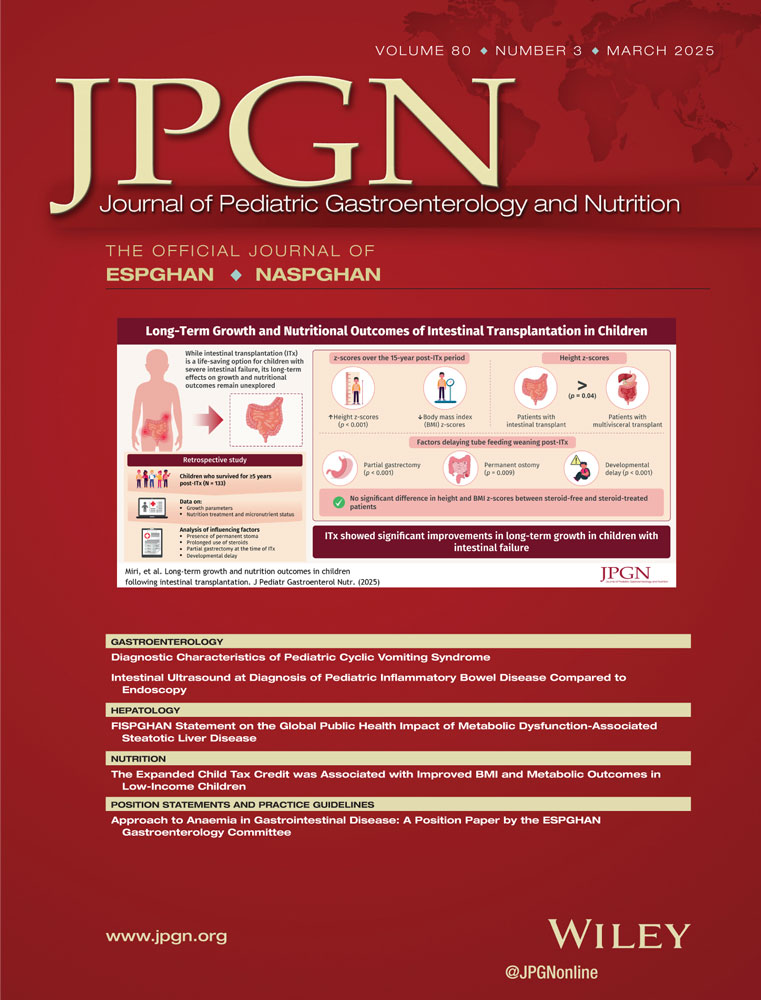Determining the time to cholangiocarcinoma in pediatric-onset PSC-IBD
Harland S. Winter and Jochen K. Lennerz contributed equally as senior authors.
Abstract
Primary sclerosing cholangitis (PSC) is a risk factor for cholangiocarcinoma. When a child is diagnosed with both PSC and inflammatory bowel disease (IBD), evidence-based information on counseling families and risk management of developing cholangiocarcinoma is limited. In this case series (PubMed/collaborators), we included patients with PSC-IBD who developed cholangiocarcinoma and contacted authors to determine an event curve specifying the time between the second diagnosis (IBD or PSC) and a diagnosis of cholangiocarcinoma. Review of n = 175 studies resulted in a cohort of n = 21 patients with pediatric-onset PSC-IBD-cholangiocarcinoma. The median time to development of cholangiocarcinoma was 6.95 years from the second diagnosis. Despite the small number, 38% of cholangiocarcinoma developed within the first 2 years, and 47% of patients developed cholangiocarcinoma in the transition period to adult care (age 14–25). Our findings highlight the importance of screening that extends over the so-called transition period from pediatric to adult care.
CONFLICT OF INTEREST STATEMENT
Mark Deneau has been a consultant for Gilead and HighTide Biopharmaceuticals USA. Harland S. Winter has received research support from Janssen Pharmaceuticals, Nutricia, Nestle Nutrition, Pfizer, Pediatric IBD Foundation, Women's Wellness Foundation, Autism Research Foundation, Pediatric IBD Foundation, and Abbvie and serves as a consultant on data safety monitoring boards (Pfizer and Janssen Pharmaceutical). Catherine A. M. Stedman has received research support and speaker's bureau honorarium from Abbvie Ltd. The remaining authors declare no conflicts of interest.
Open Research
DATA AVAILABILITY STATEMENT
All relevant data are within the paper and its Supporting Information file.




